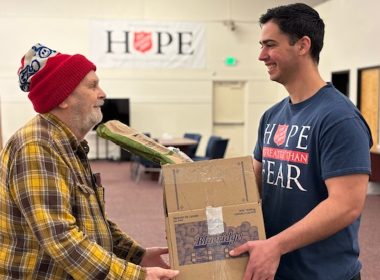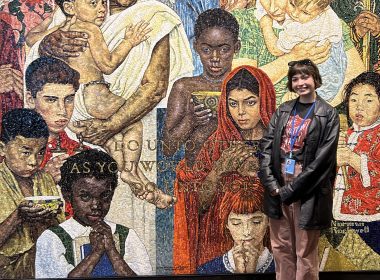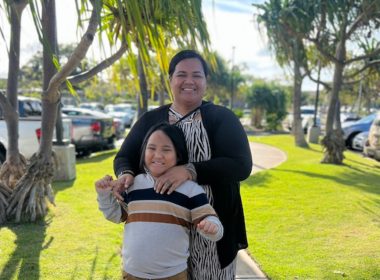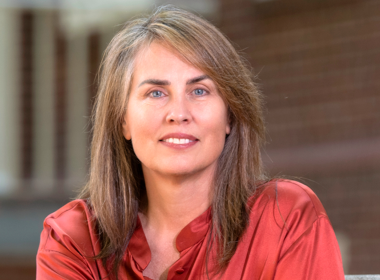
By Judy Vaughn –
In San Francisco Bay Area corps community centers, a climate of change is emerging–an outreach for growth and, in several cases, a change of address.
A domino effect is taking place, mostly dictated by real estate but also influenced by pure numbers. Old facilities are no longer adequate to hold their growing congregations. New communities need to be visited.
“The Salvation Army in San Francisco has had a long record of faithful and dedicated service to the needs of the people of this city,” says Divisional Commander Lt. Col. Richard Love. “We are confident that we will be able to continue that tradition of service in the coming years.”
The San Francisco Citadel’s move to South San Francisco pioneers new corps activity in a community served by service extension volunteers in the past, but until now without a church home for the many Salvationists who live in the area.
Growth potential is very exciting under the leadership of Lts. Phil and Lawry Smith, who have already made many friends in the business, civic and public service communities and are moving ahead quickly to establish a strong Salvation Army presence.
The Citadel’s move opens the doors in The Salvation Army building on 19th Avenue for the Korean Corps, which has long since outgrown its tiny headquarters on the Great Highway. This is a stable congregation whose members come from across the city and even across the Bay and down the peninsula to attend meetings, including early morning prayer watches with Lts. Fred and Chris Kim.
Their allegiance continues with regular monthly visits to the Army’s Lifeboat Lodge emergency shelter for homeless in the Tenderloin, Adult Rehabilitation Center and Pinehurst Centers for recovering alcoholics, and Harbor Light’s detox center. Every visit includes a huge Korean meal and a spirited evangelistic musical program.
In part because of the camaraderie established with other Korean church groups in the Bay Area, the corps has attracted nearly 1,000 Koreans to each of two successive Christmas cantatas–a unique ministry of music attended by San Francisco Mayor Willie Brown last year.
Stretching levels of comfort
If the numbers at the Asian American Corps’ Sunday services have increased dramatically in the past six months, it’s because its leaders have developed a “strategy for growth.” On the other hand it could also be because they’ve changed the hour for morning service from 9:30 to 10:45. Either way, it’s a sign of change–a determination not simply to stay at a known level of comfort.
When they were part of the Chinatown Corps, English services began early in order to accommodate the Chinese service at 11:00. But they’ve been gone from Chinatown for five years now. There no longer is a reason to meet arbitrarily at the earlier hour. Today, increasing statistics show a need for extra chairs at each service as soldiers have the opportunity to sleep in a little longer, come a little later and stay a little longer.
The time change–although a small one–reflects a positive thrust forward. The corps no longer feels as if it’s just trying to stay alive, “juggling plates and trying to keep them all up the air at the same time.”
“There is a real direction now,” says Captain Keilah Toy. “We’re on a roll with a vision. And part of that vision is a call to greater accountability. When you give people a challenge they generally rise up to it, so we’ve asked our leadership team to sign a covenant of spiritual growth. About 50 people–including those who do the most menial jobs–are looking seriously at the ways they can help out.”
The corps’ unique contemporary style of music, of course, is also part of its draw. Captain Ron Toy says these soldiers do not necessarily come out of the traditional church. Many have no church background at all. They’re new believers not used to organ and litany. What the corps gives them is a new way to receive the gospel, much the same way General William Booth changed the words of bar songs to reach new audiences.
Planned, slow and solid growth
Turk Street Central’s A/Captain Patrick Granat also speaks of long-range planning, of “planned, slow and solid growth–not just opportunity for flash-in the-pan growth.” In the past year the corps has gone from one Sunday morning service to two, and seen a ten percent growth that would not have been possible with only one service. Making the change to two services was a leap of faith. At first they were both sparsely attended, but now they’re in a growth mode.
A full time youth program director has been hired to achieve a ten percent growth in all youth programs. Attendance at Bible study, Home League and Twelve Step programs is growing. Social service programs now include 55 “Meals That Heal” delivered to frail seniors and 30 new beds for homeless paid for by the Department of Human Services, bringing Lifeboat Lodge’s count to 86 emergency beds.
Outreach to youth
For San Francisco Chinatown, major growth recently has focused on youth programming. The after-school program has grown from 15 kids to 100 who come to do their homework from 3:00 until 5:00 p.m. After a snack, they take turns in a reading program. On Fridays, there’s chapel followed by a movie. These children are “brand new to the corps,” says Captain Robin Hu, and “they’re returning for Sunday school, where attendance is up 150 percent.”
A basketball clinic is available for elementary school children: basketball, volleyball and badminton for high school and college students; a basketball league for young professionals. A second women’s Home League is planned, as well as a Chinese orchestra for adults.
A new chapel
At Harbor Light, the Lighthouse Corps looks forward this month to receiving the architect’s working plans for its new chapel, a building that will increase its capacity by 50 percent. Major Larry Shiroma expects to break ground in early summer and hopes to be open in September.








